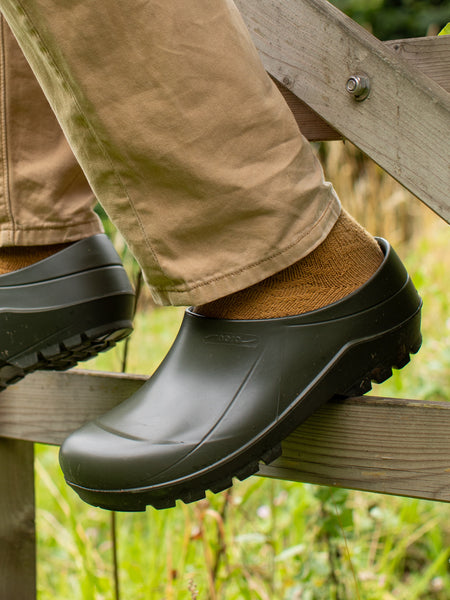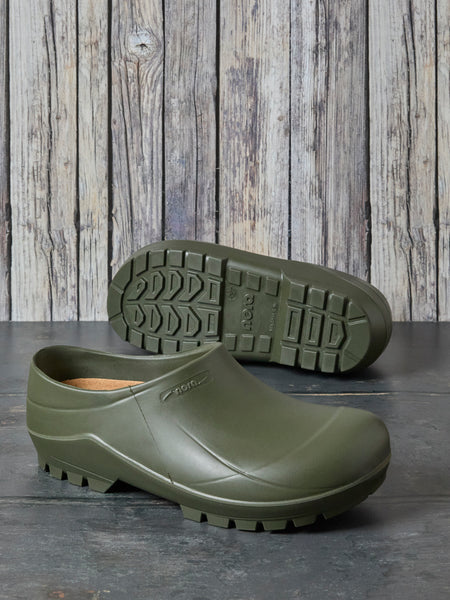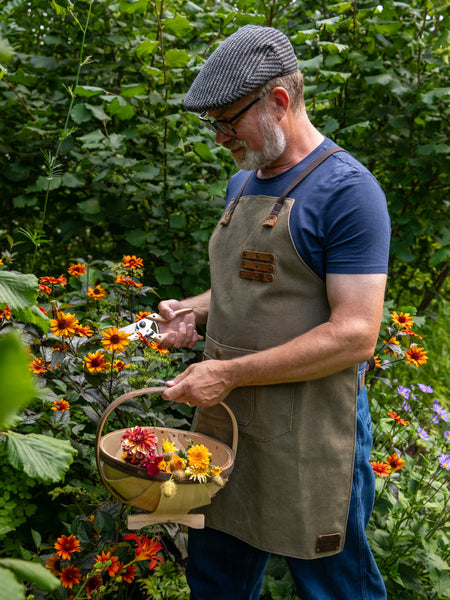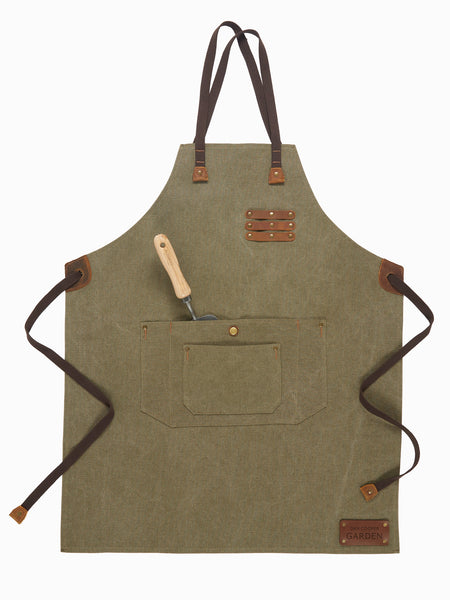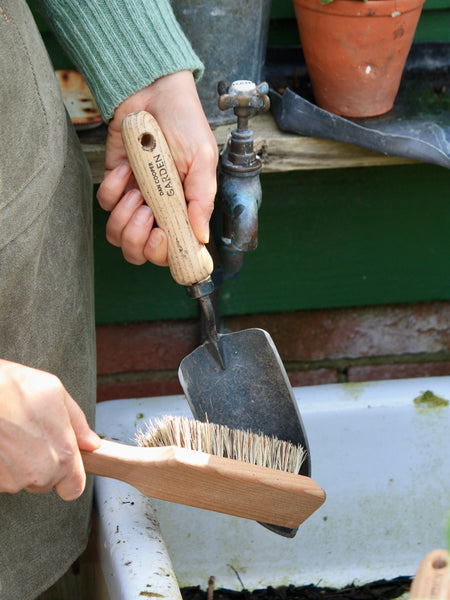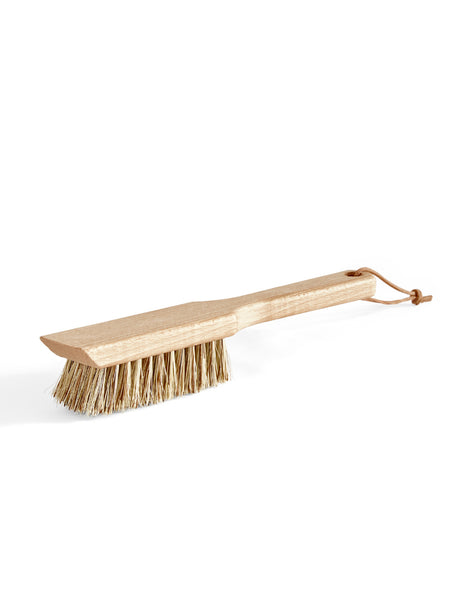For most of us, gardening is not a priority during December. The weather tends to be drab, cold and disappointingly devoid of the frost, snow and bright skies depicted on Christmas cards. We’d rather be warm and snug indoors, enjoying a good book, a festive film or celebrating the season with friends and family.
When all the socialising, eating, and gift wrapping get too much, our gardens, sheds and greenhouses offer quiet escapes, just far enough away that we can’t hear the repetitive strains of Michael Bublé and calls to participate in yet another game of Monopoly - or at least that’s our story! Make the most of this lull in the gardening calendar, as it will be time to start sowing seeds again before you know it.
Rather than add to the pressures of Christmas with another long list to tick off, I’ve distilled December’s jobs down to just ten. Once you’ve discounted those that don’t apply to you, there will be even less to think about. When no one is looking, pour some mulled wine into a flask, wrap up warm and sneak out the back door for some seasonal solitude in your winter garden.
- December is the last chance to plant spring-flowering bulbs. It’s a little late for everything except tulips, but it's still worth getting bulbs in the ground or in pots now rather than wasting them. Garden centres and websites often have brilliant deals on unsold bulbs; provided they’re in good condition and you plant them straight away, they should produce a decent display next year. I will confess to using the limbo period between Christmas and New Year to complete all sorts of jobs I should have done earlier, and it will be just the same this year, no doubt.
- There’s a balance between welcoming wildlife into your garden with glorious disarray and keeping it safe and hazard-free. Remove fallen leaves from lawns and paths, and either pile them on borders or collect them in hessian sacks where they will decompose and produce leaf mould. If you have a shredder, passing leaves through it will speed up the process and make a delightful mulch. Brush paved paths with sharp sand to remove slippery algae and accumulated moss. Collect up redundant bamboo canes and store them safely. Hundreds of accidents are caused yearly by errant plant supports, and the last thing anyone wants is to spend Christmas in A&E. (I have skewered myself on more than one occasion, and it’s not funny.)
- Once hedgerows, gardens and allotments have been stripped of their natural bounty, birds will start returning to bird tables and feeders for sustenance. During cold weather, provide high-energy feed and ensure animals have access to fresh water. Cleanliness is vital for the health of garden birds, so it’s a good time to start cleaning out bird boxes in readiness for the spring.
- If it’s grotty outside, or you haven’t got the energy to move beyond the sofa, now’s a great time to sort your seed box, discarding any that are out of date (although they could still be worth trying) and making a note of new varieties you’d like to source. No sooner will you have vacuumed up the last pine needle than the first seed catalogues will start arriving in your letterbox. I also grasp the opportunity to pick up the gardening books I so optimistically purchased through the year and never got around to reading. More will appear under the Christmas tree, and the cycle will begin again.
- On fine, dry days, gather any remaining seed heads to decorate around the home or to make wreaths and garlands. At no other time of year do dry and fresh elements combine so well. I love how the tassels of miscanthus open into fluffy plumes after a few hours in the warmth. If you’re craving sparkle, use spray paints or glitter to highlight a few elements, but don’t go overboard and mask their natural beauty.
- Should it snow, shake the excess from trees and shrubs where the weight might cause branches to bend and break. Columnar (pillar-shaped) trees and topiary are particularly vulnerable. Closer to the ground, snow covering provides helpful insulation for overwintering bulbs and perennials. Avoid treading on frosted lawns, as this can damage grass blades and invite disease.
- If you’re storing tubers, fruit and vegetables in a shed or garage, check them over every fortnight to ensure there’s no sign of mould, rot or shrivelling. They should be firm to the touch with taught skin. Good ventilation is critical, so avoid using plastic as a cover and opt for hessian, fleece or old cotton sheets instead.
- If you planted potatoes in anticipation of fresh spuds at Christmas time, you should be able to start lifting them now. Main crop potatoes still in the ground can be dug as needed, but don’t forget they are there as they’ll begin to sprout as soon as the weather warms up in spring.
- The wind is one of our greatest enemies, particularly in urban, balcony, coastal, hilltop or otherwise exposed gardens. Firmly stake new trees and either support or ‘earth up’ tall brassicas such as Brussels sprouts, kale and purple sprouting broccoli. Countless times I’ve thought, ‘Oh, they’ll be OK’ and lived to regret it. Stake plants now, and you can forget about them.
- Many of our greatest gardens put on spectacular light displays from now until early in the New Year. These events might not offer a complete escape from the madding crowd, but they highlight the magnificent structure of gardens we’re used to seeing fully clothed. Not only that, but a leisurely walk, some fresh air and a little distance from relatives that have outstayed their welcome can be the perfect tonic.



